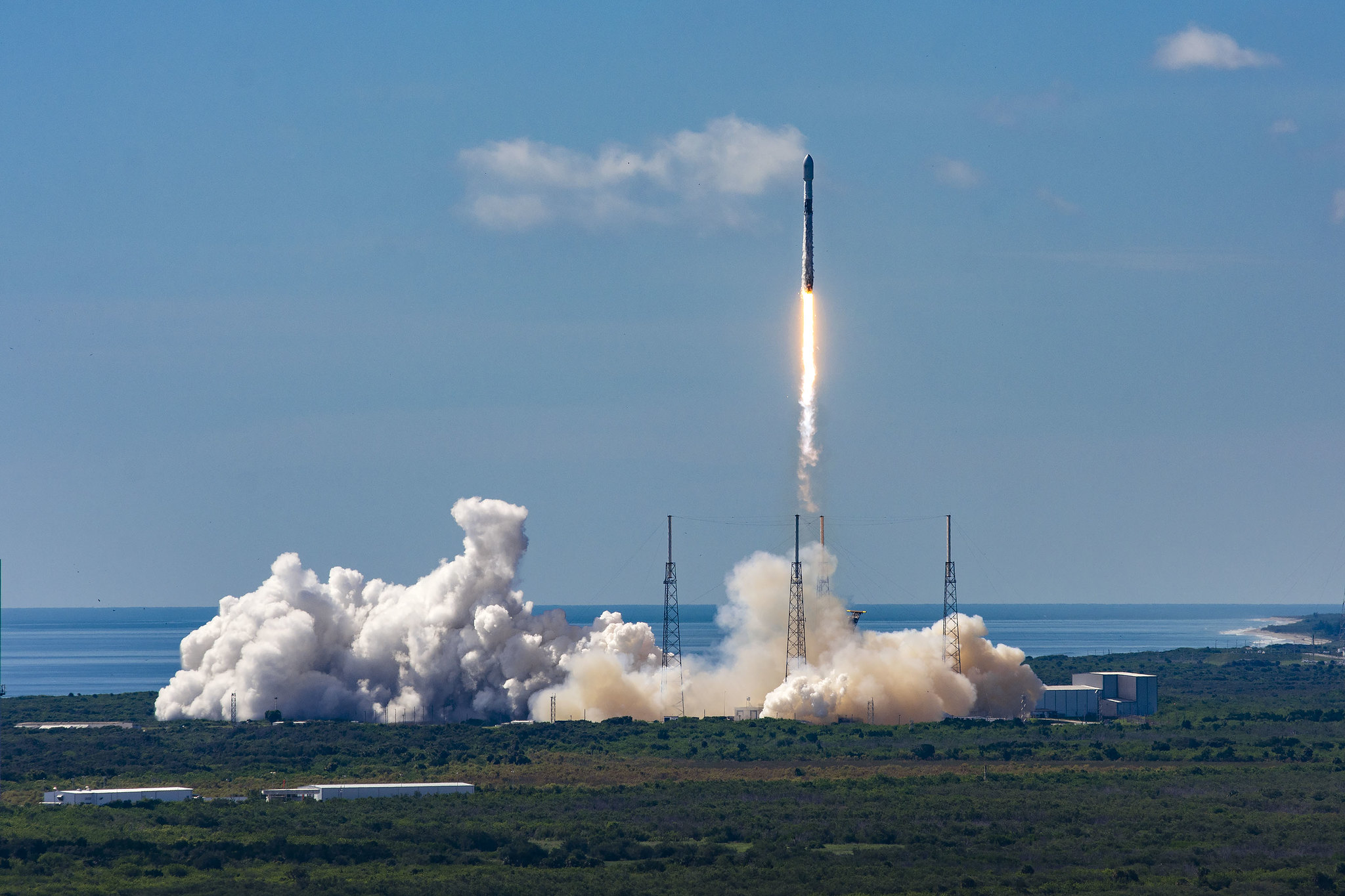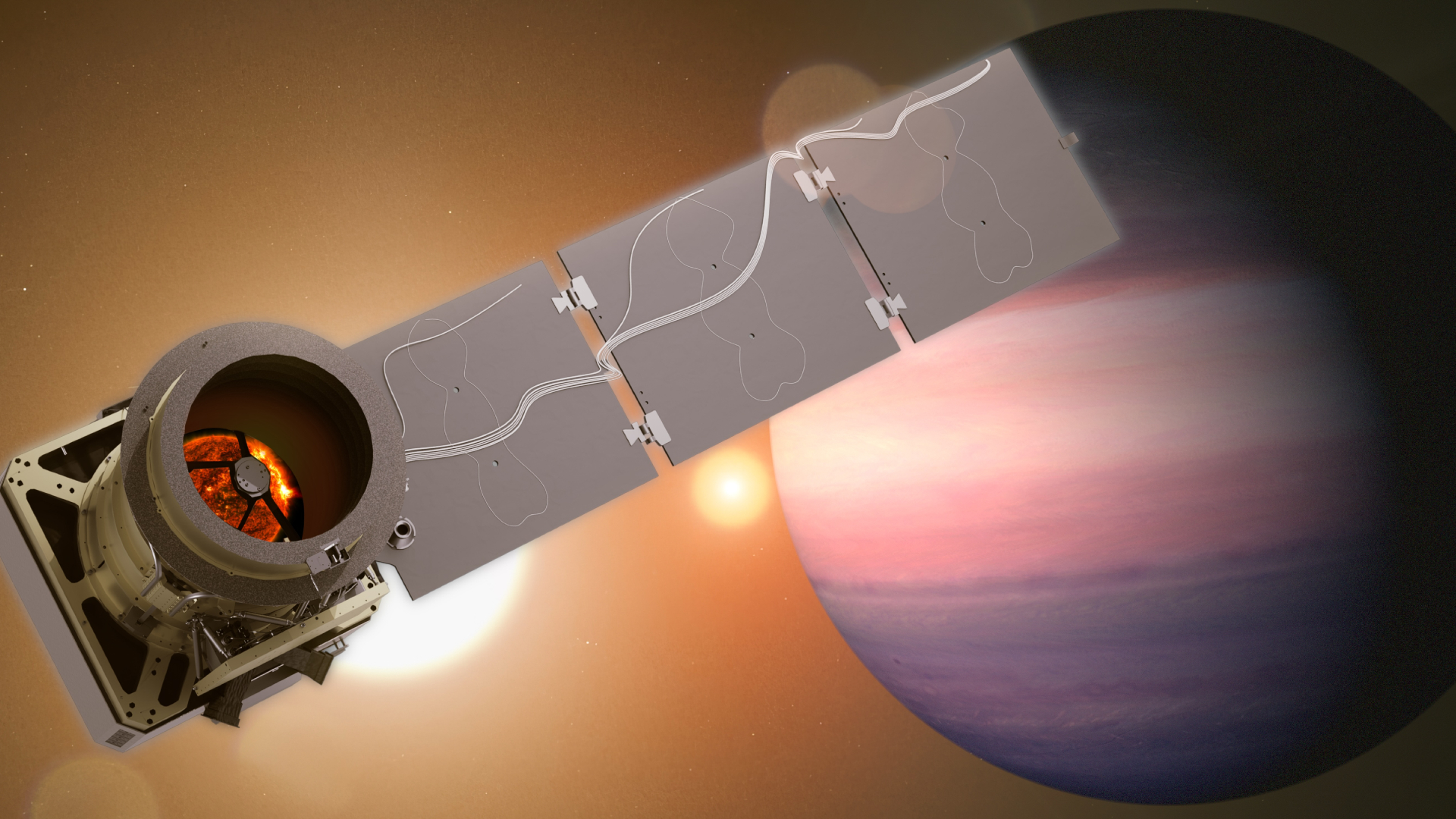Launchapalooza! You can watch 5 rockets launch in 4 days this week

Update for 3:40 a.m. EDT on Aug. 29: ULA scrubbed Thursday morning's attempt to launch the NROL-44 satellite due to a ground-systems issue. The next attempt, which took place early Saturday morning (Aug. 29), was aborted a few seconds before liftoff. It's unclear at the moment when the next launch opportunity will come.
SpaceX's Starlink and SAOCOM 1B launches are now scheduled for Sunday (Aug. 30), at 10:12 a.m. EDT (1412 GMT) and 7:18 p.m. EDT (2318 GMT), respectively. Rocket Lab has also pushed its return-to-flight launch to Sunday, at 11:05 p.m. EDT (0305 GMT on Monday, Aug. 31).
Also, expected bad weather has led Astra to delay its first orbital launch attempt to no earlier than Sept. 10.
Space fans are in for a treat later this week.
Five missions are scheduled to launch from Thursday to Sunday (Aug. 27 to Aug. 30), three of them from Florida's Space Coast.
The action begins Thursday at 2:12 a.m. EDT (0612 GMT), when a United Launch Alliance Delta IV Heavy rocket will loft the U.S. National Reconnaissance Office's classified spy satellite NROL-44 from Cape Canaveral Air Force Station in Florida. You'll be able to watch that launch here and on Space.com's homepage, courtesy of ULA. ULA's webcast will begin about 20 minutes before launch and is available directly from the company here.
Then, at 7:19 p.m. EDT (2319 GMT) on Friday (Aug. 28), a SpaceX Falcon 9 rocket will launch from Cape Canaveral, carrying the SAOCOM 1B satellite skyward for Argentina's national space agency.
Breaking space news, the latest updates on rocket launches, skywatching events and more!
A few hours later, on the other side of the world, Rocket Lab's Electron booster will roar to life in a return-to-flight mission, its first after a July 4 anomaly. If all goes according to plan, Electron will launch from Rocket Lab's New Zealand complex at 11:05 p.m. EDT on Friday (0305 GMT on Saturday, Aug. 29), carrying the Sequoia Earth-observation satellite to orbit for San Francisco company Capella Space.
SpaceX will be back in action on Sunday (Aug. 30), launching 60 of its Starlink internet satellites atop a Falcon 9. Liftoff is scheduled to take place at 10:08 a.m. EDT (1408 GMT) from NASA's Kennedy Space Center, which is next door to Cape Canaveral Air Force Station.
California-based startup Astra will round out the launch party Sunday night. The company plans to launch its first orbital mission at 10 p.m. EDT (0200 GMT on Monday, Aug. 31), sending its Rocket 3.1 skyward from the Pacific Spaceport Complex on Alaska's Kodiak Island.
Editor's note: Space.com will carry webcasts for the upcoming launches from ULA, Rocket Lab and SpaceX. Visit near launch time to see the missions.
This story was updated at 4:00 p.m. EDT on Aug. 26 with news of Astra's planned Sunday launch.
Mike Wall is the author of "Out There" (Grand Central Publishing, 2018; illustrated by Karl Tate), a book about the search for alien life. Follow him on Twitter @michaeldwall. Follow us on Twitter @Spacedotcom or Facebook.

Michael Wall is a Senior Space Writer with Space.com and joined the team in 2010. He primarily covers exoplanets, spaceflight and military space, but has been known to dabble in the space art beat. His book about the search for alien life, "Out There," was published on Nov. 13, 2018. Before becoming a science writer, Michael worked as a herpetologist and wildlife biologist. He has a Ph.D. in evolutionary biology from the University of Sydney, Australia, a bachelor's degree from the University of Arizona, and a graduate certificate in science writing from the University of California, Santa Cruz. To find out what his latest project is, you can follow Michael on Twitter.
